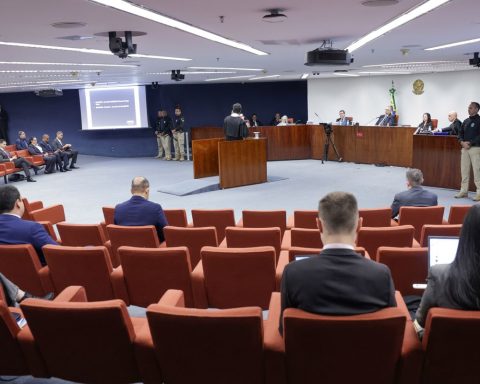From today (10), 12 banks are authorized to make payroll-deductible loans to those benefiting from Auxílio Brasil and Benefício de Prestação Continuada (BPC). Payroll loans are those granted by financial institutions with automatic deduction of installments from the salary or benefit payroll.
According to the law which released the operations, Auxílio Brasil beneficiaries will be able to borrow up to 40% of the permanent transfer of R$ 400 from the program. In this way, they will be able to discount up to R$ 160 per month, within a maximum period of 24 months.
Maximum interest is 3.5% per month, as defined by the Ministry of Citizenship. However, each financial institution may adopt lower rates, depending on the negotiation with the borrower.
The financial institutions authorized by the Ministry of Citizenship are: Caixa, Banco Agibank; Crefisa Bank; Daycoval Bank; Pan Bank; Safra Bank; Capital Consig Direct Credit Society; Facta Financeira S/A Credit, Financing and Investment; Pintos S/A Credits; QI Direct Credit Society; Direct Credit Society Value; and Zema Credit, Financing and Investment.
Family heads covered by Auxílio Brasil and BPC holders may make the payroll loan directly from authorized banks. “It is recommended that each family member contact the banks to verify the best proposal”, warned the Ministry of Citizenship.
He added that the amounts will be deposited by the financial institution in the same account where the payment of the benefit is made, within two business days after contracting the loan.
The Ministry of Citizenship also informed that it will offer financial education actions. “By contracting the product, the beneficiaries to haveThey will not have to answer a questionnaire that will measure their knowledge on the subject and their ability to manage the loan”, he explained.
Scratchs
After the sanction of the law that releases payroll-deductible loans, the economist and professor of Financial Markets at the University of Brasília, César Bergo, warned of some risks that the contracting of payroll-deductible loans may represent for the lower-income public.
According to him, people need, above all, to be aware of the harassment of financial institutions so as not to fall into scams. In this sense, added the professor, it is important that beneficiaries have notions about financial education, in order to “act in a rational and non-emotional way” when taking out this type of loan.
“Often, they have no idea what interest is, what a loan is. Suddenly, she takes on a debt, and what she receives to support herself, which is already little, gets even smaller. Because the main objective of this help is [beneficiar as] people who are often completely out of the job market and have no other income”, he clarified.















